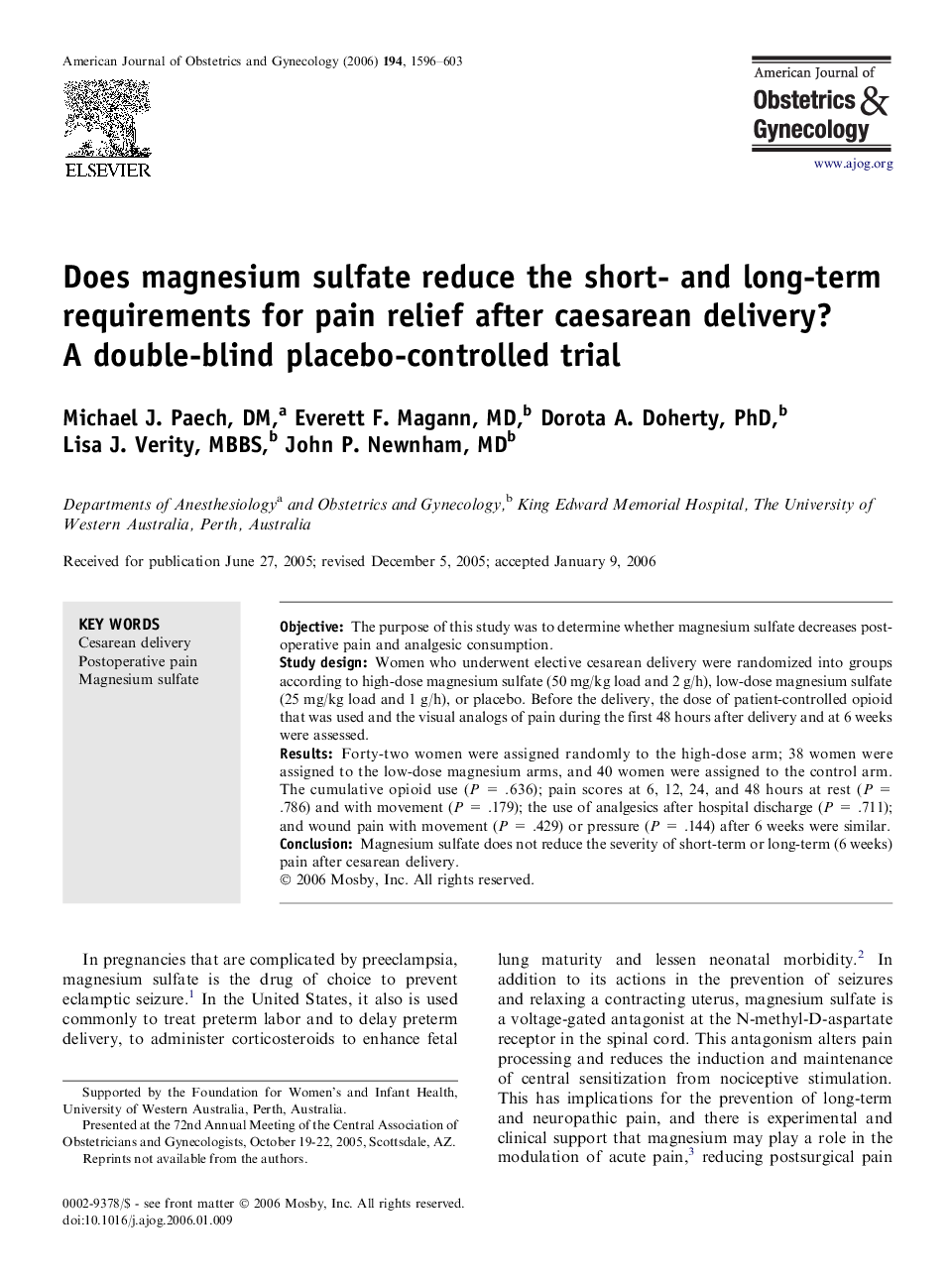| Article ID | Journal | Published Year | Pages | File Type |
|---|---|---|---|---|
| 3442592 | American Journal of Obstetrics and Gynecology | 2006 | 7 Pages |
ObjectiveThe purpose of this study was to determine whether magnesium sulfate decreases postoperative pain and analgesic consumption.Study designWomen who underwent elective cesarean delivery were randomized into groups according to high-dose magnesium sulfate (50 mg/kg load and 2 g/h), low-dose magnesium sulfate (25 mg/kg load and 1 g/h), or placebo. Before the delivery, the dose of patient-controlled opioid that was used and the visual analogs of pain during the first 48 hours after delivery and at 6 weeks were assessed.ResultsForty-two women were assigned randomly to the high-dose arm; 38 women were assigned to the low-dose magnesium arms, and 40 women were assigned to the control arm. The cumulative opioid use (P = .636); pain scores at 6, 12, 24, and 48 hours at rest (P = .786) and with movement (P = .179); the use of analgesics after hospital discharge (P = .711); and wound pain with movement (P = .429) or pressure (P = .144) after 6 weeks were similar.ConclusionMagnesium sulfate does not reduce the severity of short-term or long-term (6 weeks) pain after cesarean delivery.
